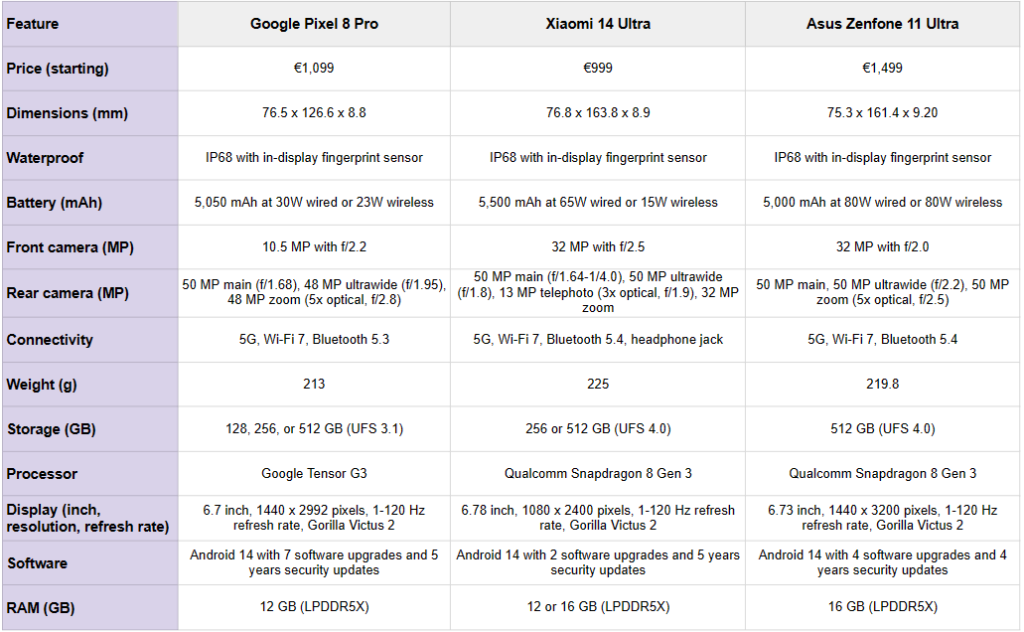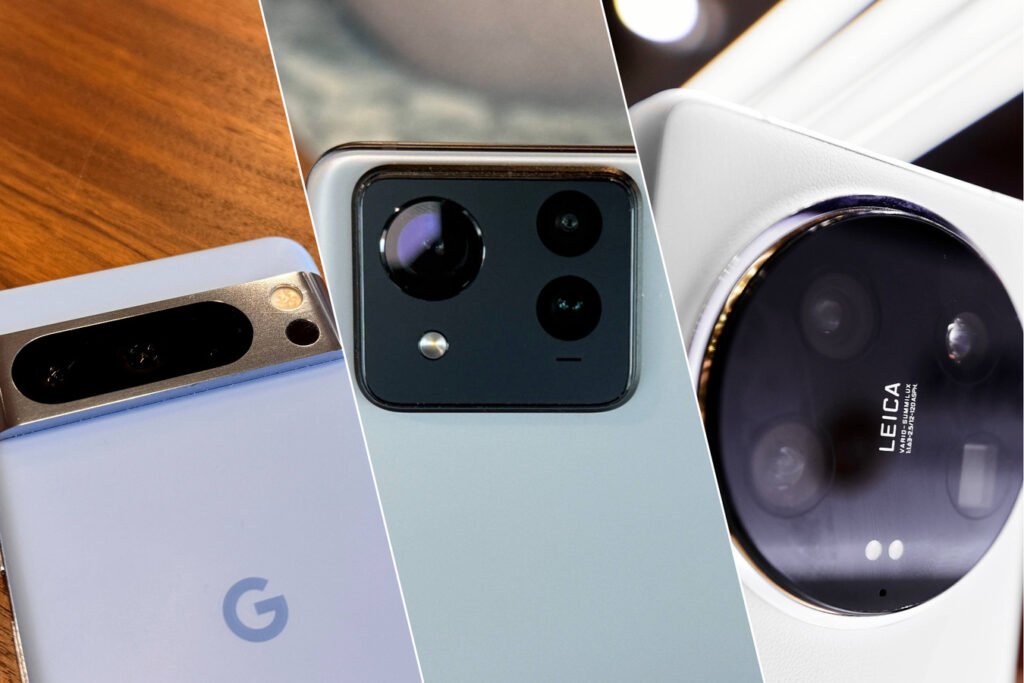
Description: Explore the world of three lesser-known smartphones – Google Pixel 8 Pro ($1,099), ASUS Zenfone 11 Ultra ($999), and Xiaomi 14 Ultra ($1,499) – as we delve into their features and capabilities. Discover if these underrated devices can compete with industry giants like Samsung and Apple.
Unveiling Hidden Gems: Can These Phones Rival the Big Names?
Ever feel like you’re stuck choosing between the same two phone brands? In our tech-driven world, smartphones are practically glued to our hands. Sure, big names like Samsung and Apple dominate the market, but there are hidden gems out there waiting to be discovered. Today, we’re diving into three under-the-radar smartphones that might surprise you: the Google Pixel 8 Pro (around $1,203), ASUS Zenfone 11 Ultra (around $1,092), and Xiaomi 14 Ultra (around $1,642). We’ll explore their strengths to see if they can compete with the industry giants.
Software Savvy: The Google Pixel 8 Pro Takes the Lead
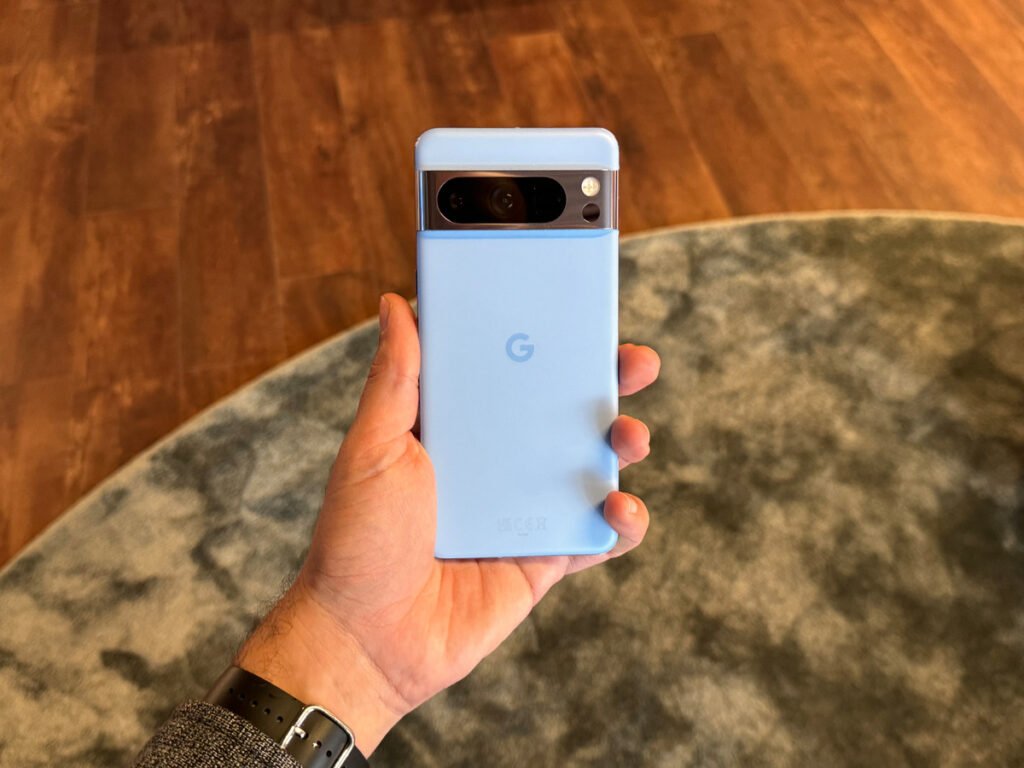
Google’s Pixel phones have always been known for their innovative software. The Pixel 8 Pro continues this legacy by launching with Gemini, Google’s impressive answer to ChatGPT. Plus, Pixel phones are the first in line for yearly Android upgrades, keeping your phone feeling fresh and secure.
Unlike some competitors, the Pixel 8 Pro offers a clean, clutter-free experience. Forget duplicate apps like multiple browsers or messaging tools. Google also promises excellent long-term support: seven years of new Android versions and security updates! While Samsung offers a similar commitment, updates on their phones might roll out slower. Apple doesn’t make promises, but iPhones typically receive updates for a comparable timeframe.
Battery Beast: The ASUS Zenfone 11 Ultra Goes the Distance
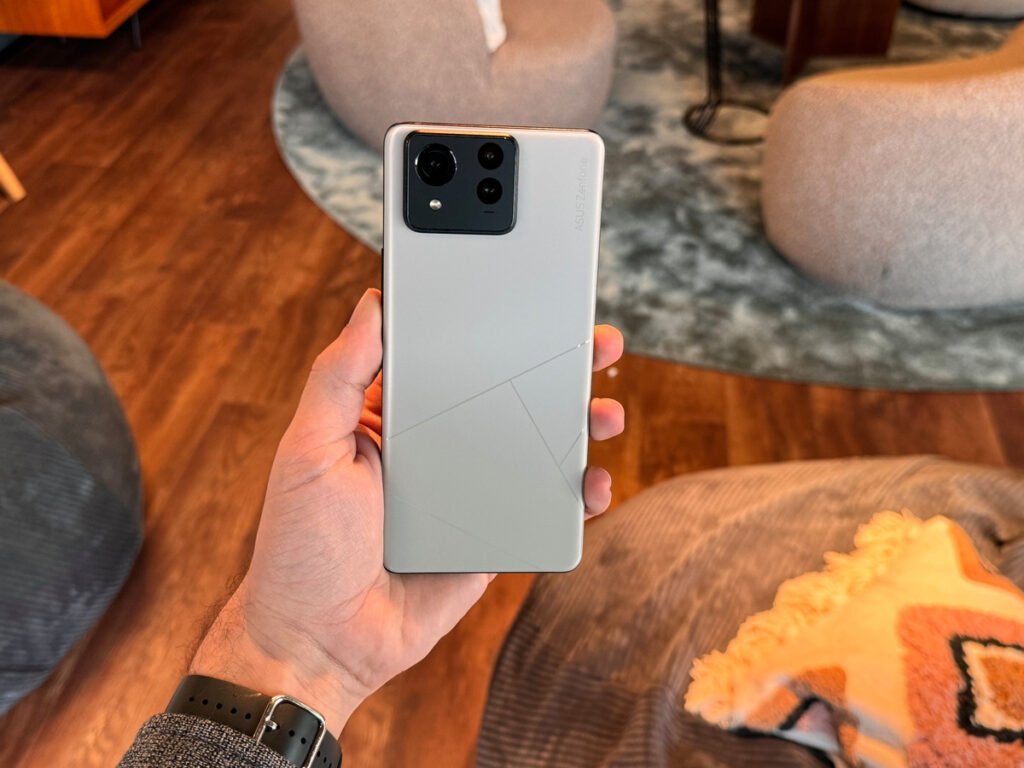
A dead battery is a major buzzkill, which is why battery life is a big deal. With a massive 5,500 mAh battery, the ASUS Zenfone 11 Ultra boasts the longest-lasting battery we’ve ever tested. In comparison, the Galaxy S24 Ultra comes in at 5,000 mAh, and the iPhone 15 Pro Max falls behind at 4,441 mAh.
During our testing, we never managed to drain the Zenfone 11 Ultra’s battery in a single day. It typically lasted two days on a single charge! However, with a bigger battery comes a heftier phone – the ASUS weighs in at 225 grams, the heaviest of the three. (Though keep in mind, the S24 Ultra is even heavier at 232 grams!)
The Google Pixel 8 Pro falls a bit short in the battery department. While it has a 5,000 mAh battery, the processor can drain it quickly. You might need to top it up in the evening for a full day’s use. The Xiaomi 14 Ultra wins in this category, thanks to its super-fast charging – it goes from zero to 100% in just 33 minutes, compared to twice the charging time for Samsung and Apple flagships.
Camera King: The Xiaomi 14 Ultra Captures Your Vision
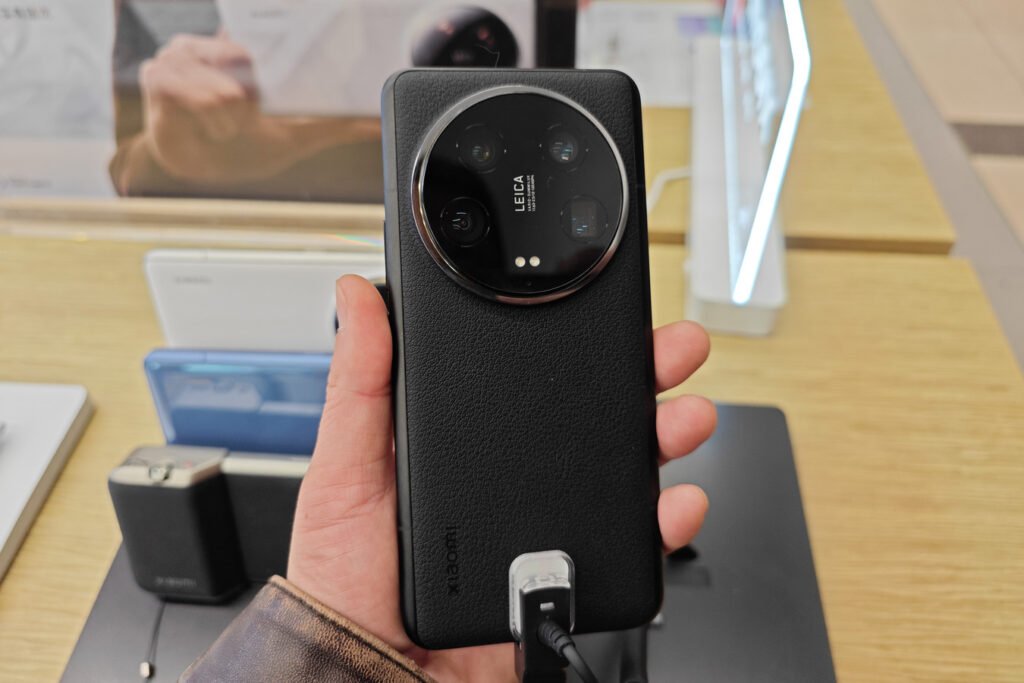
The Xiaomi 14 Ultra steals the show when it comes to rear cameras. Its unique circular camera island houses some impressive tech. One standout feature is the ability to manually adjust the aperture of the main camera. This lets you control how much light hits the sensor, giving you more creative freedom compared to purely software-based solutions. Plus, the camera app offers tons of customizable settings for photography enthusiasts.
With the Xiaomi 14 Ultra, you’re in the driver’s seat when it comes to capturing photos. Whether you’re a pro or a casual snapper, you’ll appreciate the stunning portraits this phone produces. The large image sensor eliminates the need for a separate portrait mode, making it user-friendly for all skill levels.
However, for most users, the Pixel 8 Pro remains our top pick. You don’t need to be a photography whiz to take amazing pictures with it. Plus, the Pixel still reigns supreme when it comes to capturing action shots.
In this price range, photo quality across these phones is generally excellent, whether you choose an iPhone 15 Pro Max, Galaxy S24 Ultra, ASUS Zenfone 11 Ultra, or Xiaomi 14 Ultra.
The Verdict: Finding Your Perfect Match
Brand loyalty is great, but sometimes it’s worth exploring new options. The unique camera features of the Xiaomi 14 Ultra or the AI smarts of the Pixel 8 Pro offer compelling alternatives to the usual suspects. Ultimately, the Pixel 8 Pro emerges as a strong contender, excelling in both photo quality and software innovation.
